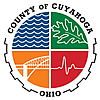Treatment Foster Care: One Family, One Home

Treatment Foster Care is a program to better support children and adolescents who struggle with significant behavioral or emotional challenges or mental illness. Foster parents in the Treatment program
receive extensive and ongoing training in behavior management and evidence-based interventions to promote healing, stability, and trust.
Children with significant issues or illnesses often end up migrating from foster home to foster home, which can be detrimental to the healing process. What they need most is stability and foster parents who won’t give up when things
get difficult. One family, one home.
We are recruiting a select group of foster parents who can take on this challenging and rewarding role.
Ideal candidates are:
- Kind, caring, flexible, and responsible.
- Committed to working through tough situations.
- Willing to coach and mentor a child’s biological family members.
- Excited to learn and implement new and dynamic approaches to child care.
You won’t be alone. Treatment foster parents work as part of a team of professional support staff, available 24 hours a day to provide therapeutic support. You will also have access to peer and respite support.
Parents will receive comprehensive training, above and beyond that required for traditional foster care licensing, for care of children with special or exceptional needs.
Additional information:
- Treatment approach
We utilize Trust-Based Relational Intervention (TBRI)®, which is an attachment-based, trauma-informed intervention designed to meet the complex needs of vulnerable children. - Compensation
Because of the challenging and demanding nature of the program, Treatment parents receive a specialized financial compensation rate above standard foster care per diems. - Training required
Treatment foster parents must meet all state licensing and training requirements for traditional foster care, plus undergo additional training of at least 20 hours. - Children in Treatment Foster Care
Children and youth of all ages are accepted into the program, but the majority are pre-adolescent or older. Children may have significant physical, emotional, or behavioral challenges, often due to previous trauma, abuse, or neglect.
Jacqueline Fletcher
- Director, Division of Children and Family Services
- Jacqueline.Fletcher@jfs.ohio.gov
- 216-432-3334

